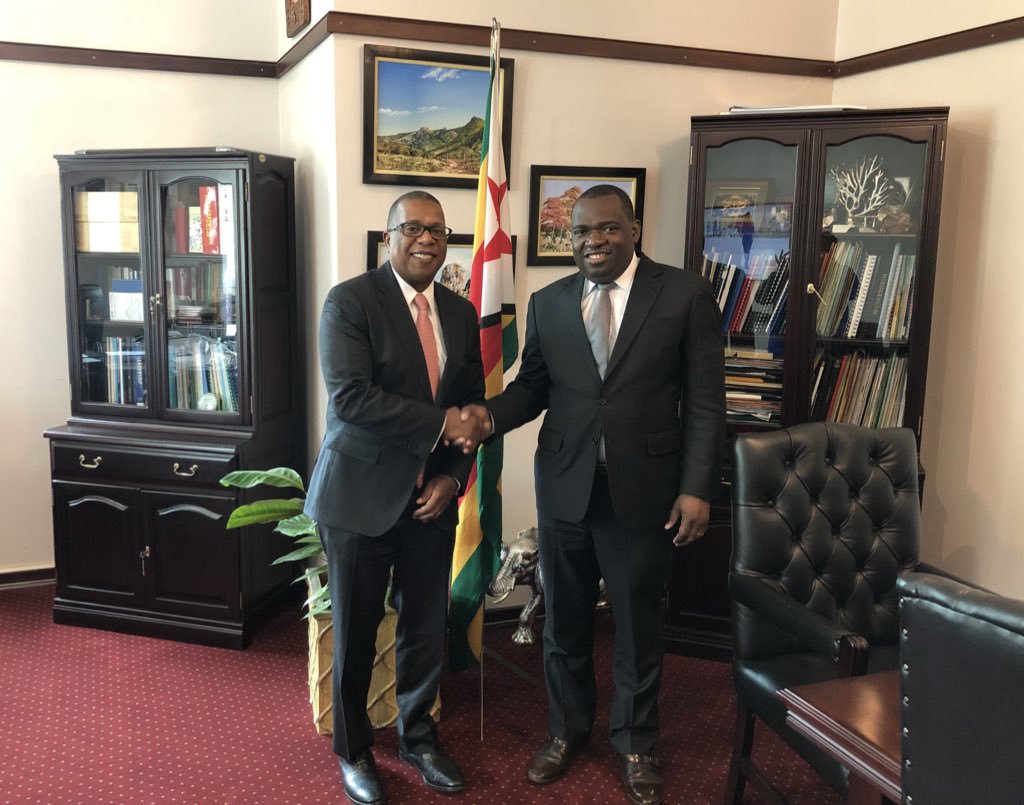Zimbabwe’s soured relations with the United States of America appear to be far from mending any time soon following the global super power’s recent extension of sanctions imposed on the Southern African country nearly two decades ago.
The US Congress last week extended its sanctions on Zimbabwe by another year, citing lack of reforms by President Mnangagwa’s administration, adding his policies continue to pose an “unusual and extraordinary” threat to the American foreign policy.
The extension of the restrictive measures comes barely five months after the Southern African Development Community (SADC) rallied behind Zimbabwe in October last year in calling for the lifting of those sanctions.
Over 141 entities and individuals in Zimbabwe including President Mnangagwa remain under US sanctions.
Foreign Affairs Minister, Sibusiso Moyo, has said while they were disappointed, the government was not surprised by the latest move.
He claimed that the government had and continues to embark on several reforms that warrant the removal of sanctions.
Moyo said some of the reforms carried out include the repeal of the Public Order and Security Act (POSA), the impending repeal of the Access to Information and Protection of Privacy Act (AIPPA) and the imminent licensing of community radio stations and independent television stations.
He further said the government was also implementing recommendations from the Motlanthe Commission Report following the August 1, 2018 shootings in Harare after the 2018 polls that led to the death of six people.
Reengagement with the world’s largest economy, Moyo said, would however continue.
“Notwithstanding the unfortunate stance, we will continue to seek meaningful re-engagement with the United States authorities on a mutual respect basis and we will, of course, continue to pursue the reform agenda we have set ourselves at a pace which is responsible, manageable and sustainable,” he said.
Political analyst, Rejoice Ngwenya, told CITE the behaviour of ZANU-PF and government institutions did not show any signs of reform, something he said justified the extension of sanctions against the regime.
“You know, the behaviour of BAZ (Broadcasting Authority of Zimbabwe), the constitutional amendments, the corruption,” questioned Ngwenya.
“I’m like these people don’t need sanctions; they need a UDI-type of blockade.”
Another political analyst, Methuseli Moyo, said the renewal of sanctions on Zimbabwe was expected.
“In as much as there has been progress in the general political temperature in the country ever since the departure of Mugabe, the disputed presidential election has caused a status quo which the international community is not prepared to ignore, hence the US decision to maintain sanctions,” said Moyo.
“This means the US has not moved. My view is that Mnangagwa’s administration has made good indications and some movement towards acceptable standards of democracy, and must be encouraged to do more. The US must reciprocate and move also, till we get to a meeting point.”
Moyo said it was difficult to predict if sanctions could be lifted anytime soon.
“It is difficult to predict, but the more ZANU-PF reforms, the less the justification for the sanctions,” he said.
“Keeping them may justify the accusations that the sanctions are vindictiveness and racism. Eventually, the sanctions will go.”
The future of Zimbabwe-US relations, Moyo said, was not bleak.
“The future looks better than the past, certainly,” he said.
“However, both sides need to work more on their attitude towards each other. The people of Zimbabwe have suffered enough. Both sides are in my view, culpable for the people’s suffering.”

